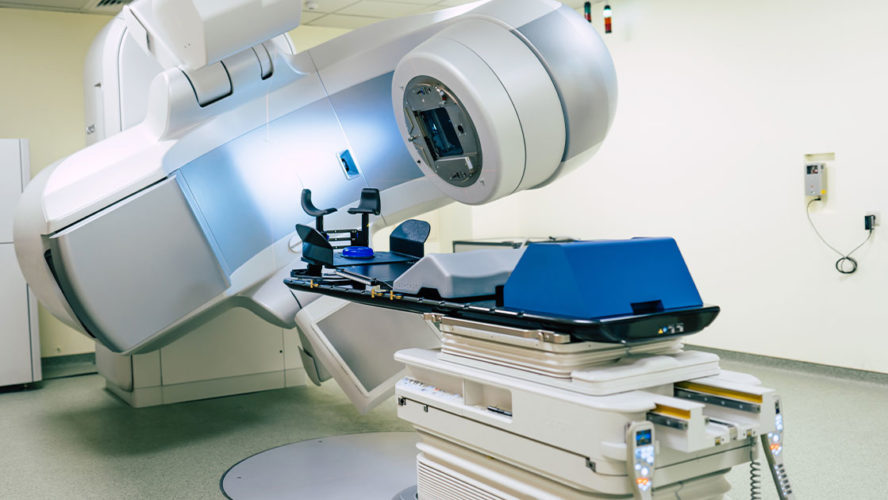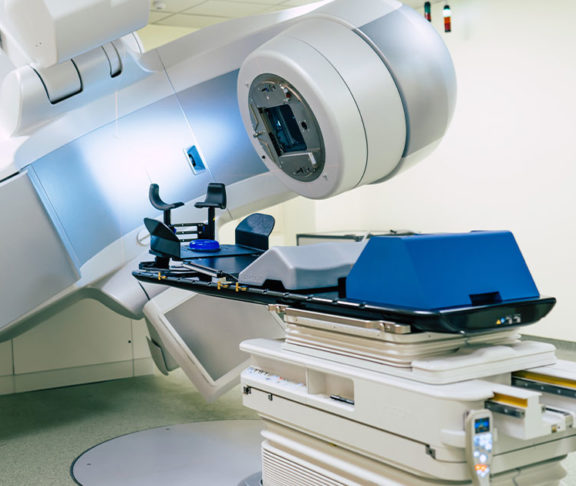Radiation oncologist Dr. Neha Vapiwala gives an overview of radiation therapy, a common treatment option for men with prostate cancer.

Neha Vapiwala, M.D.
American Society for Radiation Oncology (ASTRO)
Outcomes for men with early-stage prostate cancer are generally very favorable, especially when the diagnosis is made early in the disease process. Approximately 85-90% of men with early-stage prostate cancer will live cancer-free more than 10 years after their diagnosis.
Men diagnosed with this cancer have several available options, including active surveillance with close, regular disease monitoring and delayed intervention. The most common treatment options for prostate cancer are surgery and radiation therapy. Radiation is an effective tool used to treat cancer for more than a century; over half of all men with prostate cancer receive radiation therapy.
What to expect
Sometimes, radiation is the only treatment you need. Other times, it’s combined with surgery, hormone therapy, or chemotherapy. The best treatment plan can be determined by your primary care physician and cancer specialists, including a radiation oncologist who can evaluate your case and discuss the different types of radiation treatments available.
During a comprehensive consultation visit, your radiation oncologist will explain how radiation works against cancer, review the potential benefits and risks of various treatments, and answer your questions to help you make an informed decision.
If you elect to receive external beam radiation therapy, you’ll undergo a simulation visit involving a specialized treatment planning scan to help your team target the tumor very precisely. During treatment, your radiation oncologist will see you regularly to monitor side effects and offer recommendations to manage them.
After your radiation treatments, regular follow-up appointments will allow your radiation oncologist to ensure that your disease has responded and that any treatment-related symptoms recover as expected.
More confident care
Like any cancer treatment, radiation therapy can have side effects. Men may experience urinary, bowel, and sexual side effects during treatment and in the following months or years. Always be sure to ask questions and share concerns about side effects with your cancer care team. Fears and concerns are common and understandable; input from your cancer care team can help you feel more comfortable and confident with your care. While prostate cancer is common, each man’s experience and perspective are unique. By working with your cancer care team to better understand your options, you can feel prepared to choose the best treatment plan for you.

